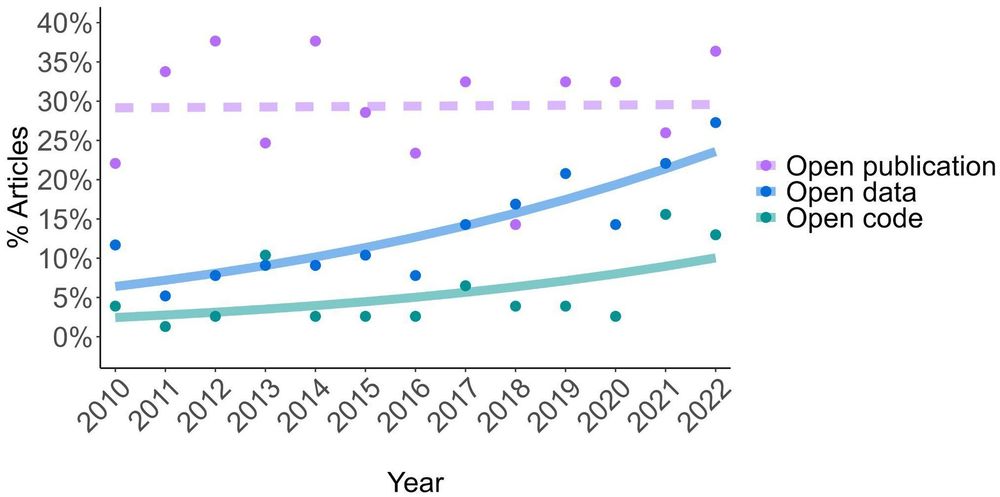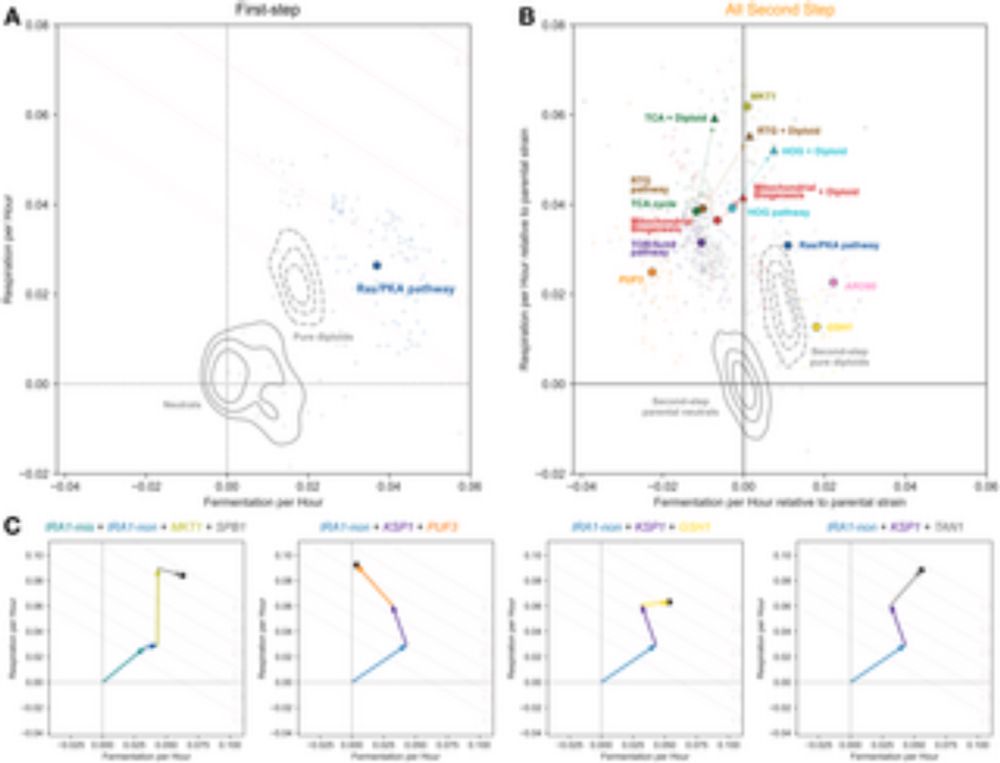Genome-wide associations of fitness components reveal antagonistic pleiotropy and sexual conflict in the Florida Scrub-Jay https://www.biorxiv.org/content/10.1101/2025.09.09.673786v1
13.09.2025 04:32 — 👍 9 🔁 7 💬 0 📌 0
Elegant empirical validation of a theoretical expectation that changing your mutation bias allows you to access more beneficial mutations. From @deepaagashe.bsky.social & colleagues in @plosbiology.org
16.07.2025 09:30 — 👍 14 🔁 4 💬 0 📌 1
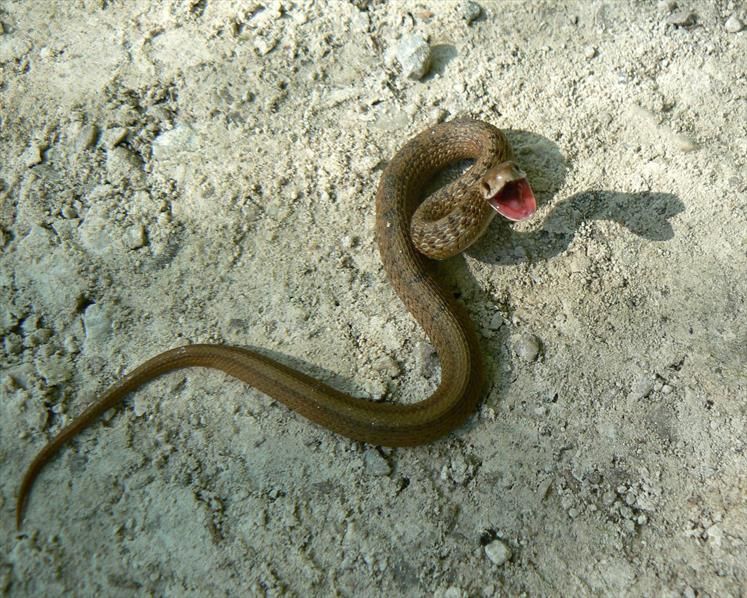
A new paper investigates how urbanization influences genetic connectivity in Dekay’s brown snakes across New Jersey, USA.
Photo: Benny Mazur/Wikimedia
03.07.2025 21:56 — 👍 1 🔁 2 💬 1 📌 0

Ya está abierta la pre-incripción al Taller de Genómica Evolutiva 2025. Organizado por @selvaorgco.bsky.social y La Universidad de los Andes, con el apoyo de @sse-evolution.bsky.social. Hay becas disponibles! ciencias.uniandes.edu.co/56-eventos/7...
03.07.2025 18:56 — 👍 6 🔁 5 💬 0 📌 0
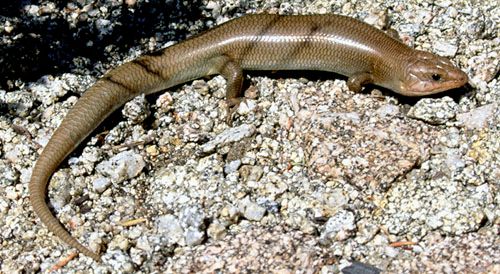
Fresh from the California Conservation Genomics Project: the first North American skink reference genome! The high-quality assembly of Gilbert’s skink (Plestiodon gilberti) will advance studies on hybridization, speciation, and adaptation.
02.07.2025 20:13 — 👍 2 🔁 1 💬 1 📌 0
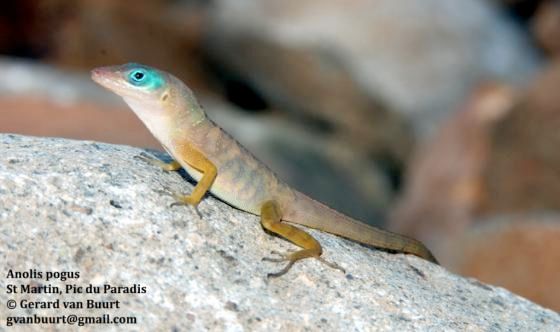
New research exploring microgeographic differentiation in the bearded anole, Anolis pogus, reveals minimal inbreeding and contrasting demographic trends with co-occurring species.
01.07.2025 00:01 — 👍 2 🔁 1 💬 1 📌 0
Very pleased to see this officially out - Genome Architecture and Speciation in Plants and Animals. With @siluwang.bsky.social, @dortizba.bsky.social and Loren Rieseberg. onlinelibrary.wiley.com/doi/10.1111/...
27.06.2025 13:22 — 👍 47 🔁 30 💬 0 📌 0
Mutation accumulation underpins evolution of lifespan extension by dietary restriction https://www.biorxiv.org/content/10.1101/2025.06.18.660314v1
25.06.2025 00:32 — 👍 2 🔁 2 💬 0 📌 0


Some evidence in the literature suggests that speciation with gene flow could occur (some examples in plants). Shafaat (Ricardo Azevedo) showed today that gene flow can cause more speciation for a given genetic differentiation. Cool stuff!
24.06.2025 03:10 — 👍 1 🔁 0 💬 0 📌 0

Dylan Padilla @dylanpadilla.bsky.social links foraging behaviors with diversification in reptile species 🐊🐍🦎
Higher diversification is associated with both active and plastic foragers
#Evol2025 #Evol25
22.06.2025 20:08 — 👍 4 🔁 1 💬 0 📌 0

Graphs showing the evolution of foraging behaviors among 997 reptile species, expected number of state transitions as estimated by the model, and net diversification rates between clades defined by the foraging behavior of species.
Relative High Fitness and Genome-wide Diversity May Facilitate Plastic and Active Foragers' Diversification doi.org/10.32942/X26...
03.06.2025 19:46 — 👍 2 🔁 1 💬 0 📌 0
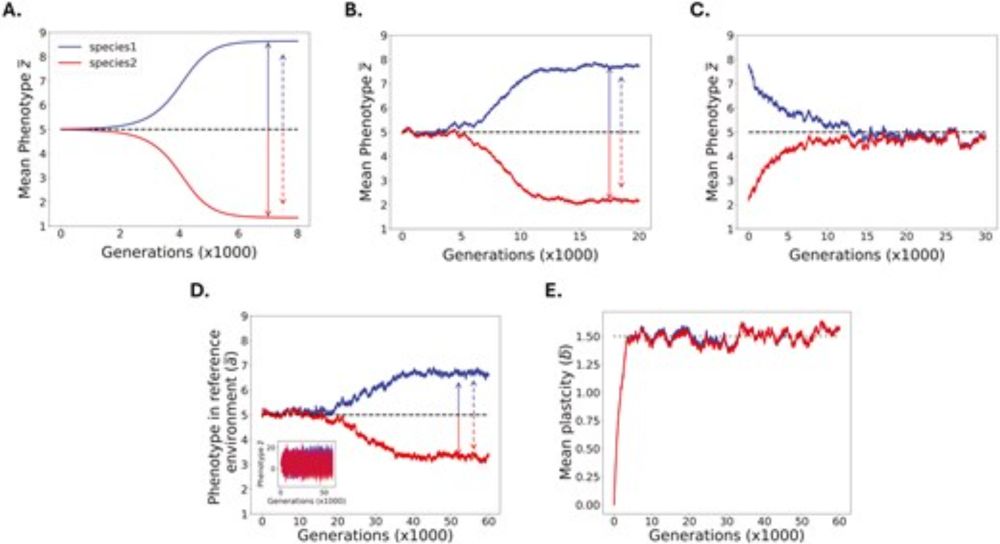
Evolution of plasticity and character displacement in a fluctuating environment
Our paper on evolution of plasticity and character displacement in a fluctuating environment is now published as early view in Evolution. Check it out if you're interested in eco-evolutionary dynamics, coevolution... and plasticity of course!
academic.oup.com/evolut/advan...
26.05.2025 08:13 — 👍 8 🔁 10 💬 0 📌 0

Starting off the new year with great news. I’m officially a G. Evelyn Hutchinson Postdoctoral Associate at the Yale Institute for Biospheric Studies. I’ll be working with both the Skelly and Munoz labs on the genomic basis of adaptation to climate change, and other topics. Exciting times ahead! 🧬🐸🦎
03.01.2025 14:52 — 👍 0 🔁 0 💬 0 📌 0

Fig. 1: The Chromosome number and Hidden State-dependent Speciation and Extinction (ChromoHiSSE) model. Panel (a) describes the event rates allowed in the model for both cladogenetic (upper) and anagenetic (lower) events. Panels (b) and (c) demonstrate those rates on a tree simulated under ChromoHiSSE. Branches that do not reach the present represent extinct, unsampled lineages. Panel (b) shows the anagenetic and cladogenetic changes in the hidden states, indicated by blue (i) vs orange (ii). Panel (c) shows the anagenetic and cladogenetic gains and losses of chromosomes, as well as speciation with no corresponding change in chromosome numbers. More red colors in (c) correspond to more chromosomes. The vertical blue and orange bars in (c) indicate clades in the blue (i) vs orange (ii) hidden states, displaying that chromosome number changes are less frequent in the blue hidden state than in the orange. The asterisk in (c) demarcates where a cladogenetic dysploidy event could appear as an anagenetic event because of unsampled lineages.
New study by @tribblelab.bsky.social @jimarcor.bsky.social @marcialescudero.bsky.social Michael May, Rosana Zenil-Ferguson and myself just out:
Introduces a novel HiSSE chromosome model and demonstrates the importance of chrom. evol. in #sedge diversity.
nph.onlinelibrary.wiley.com/doi/10.1111/...
26.12.2024 13:01 — 👍 75 🔁 24 💬 1 📌 1
Merry Christmas! 🎄🎁
26.12.2024 02:22 — 👍 1 🔁 0 💬 0 📌 0

a closeup photo of a timber rattlesnake showcasing the dark scales of the head that lighten toward the body. it appears to be looking at the camera but may also be staring into the depths of the photographer's soul.
Using a high-quality timber rattlesnake (Crotalus horridus) genome, researchers found highly duplicated Major Histocompatibility Complex (MHC) genes in rattlesnakes, demonstrating a complex evolutionary history marked by extensive duplication and loss during speciation. 🧪
25.12.2024 16:00 — 👍 4 🔁 2 💬 1 📌 0

Michael Faraday delivering a Christmas Lecture in 1856
SOURCE: Alexander Blaikley (1816 - 1903) - Widely reproduced. See Notes and Records of the Royal Society of London, 2002, volume 56, page 370.
The Royal Institution Christmas Lectures began in 1825 in London at the direction of Michael Faraday.
They were an opportunity to bring the general public to hear a lecture by an eminent scientist that captures the imagination.
They've been held every year since, except for 4 years during WWII.
25.12.2024 13:44 — 👍 116 🔁 33 💬 5 📌 1
I guess I am one of the few. We for sure need effective parameters in pop gen. But the idea that there is one scalar that will capture the complexity of population genetics and then can be used for the species as a whole and for every question is bonkers. And has been really damaging imo.
11.12.2024 19:28 — 👍 37 🔁 3 💬 4 📌 0
Code-sharing policies are associated with increased reproducibility potential of ecological findings
We show that despite the low policy compliance found by Culina et al. (2020), code- and data-sharing are much higher in journals WITH than WITHOUT a code-sharing policy:
1. Code-sharing: 27% (policy) vs 5% (no policy)
2. Data-sharing: 79% (policy) vs 37% (no policy)
📰 doi.org/10.32942/X21...
10.12.2024 07:41 — 👍 4 🔁 3 💬 1 📌 0
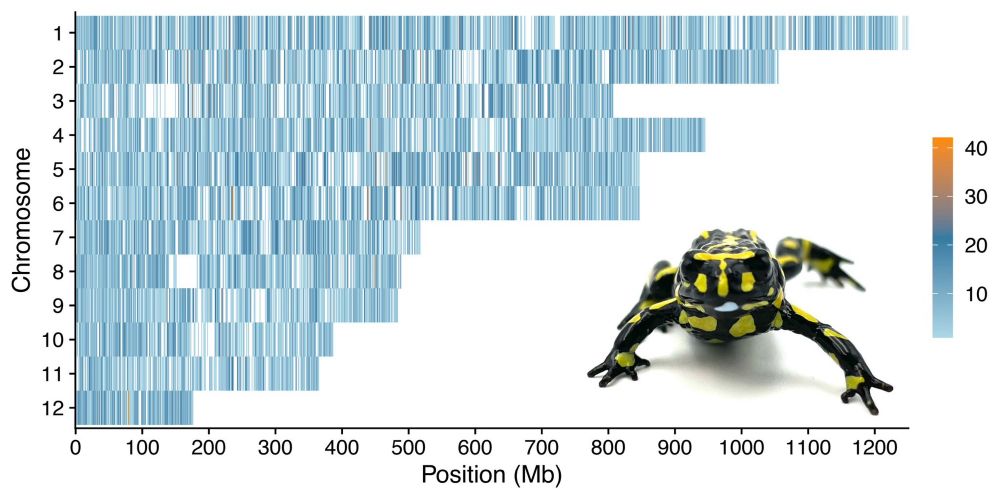
Our new preprint on designing the first custom SNP array for a #frog is out now! 🤩🐸🧬
Designed to improve conservation outcomes in the Endangered corroboree frog, we genotyped >900 frogs, looked at their population structure & diversity…
@keoghlabanu.bsky.social
doi.org/10.22541/au....
10.12.2024 04:08 — 👍 30 🔁 8 💬 1 📌 1
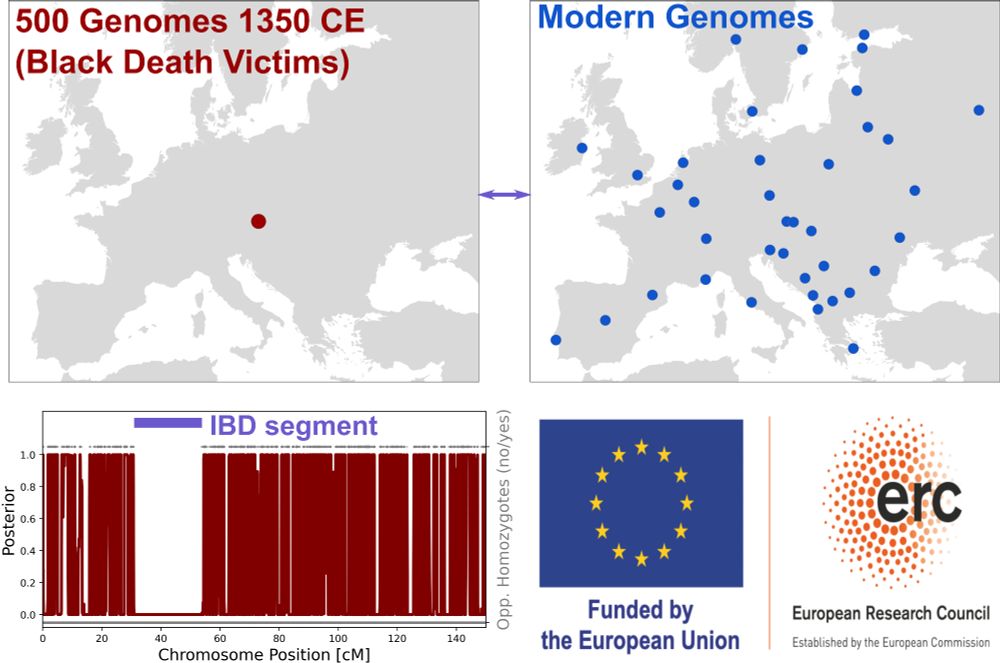
Sketch of IBD segments linking Medieval genomes from the Black Death (1350 CE) to modern Europeans. Logo of ERC-funded research.
PhD opportunity in computational population genetics at @MPI_EVA_Leipzig:
Join our fully funded project to develop IBD-segment tools, connecting high-quality genomes from 500 Black Death victims to modern Europeans. 🌍💻🧬
Please spread the word! 📢🙌 #aDNA #PopGen
www.eva.mpg.de/de/karriere/...
03.12.2024 12:52 — 👍 29 🔁 29 💬 2 📌 2

Picture of the Great Comet of 1577, seen over Prague on November 12. Engraving made by Jiri Daschitzky
Aristotle's crystalline spheres, their destruction and the consequences for the development of celestial mechanics #histsci
thonyc.wordpress.com/2024/12/05/f...
05.12.2024 08:02 — 👍 42 🔁 11 💬 2 📌 1
Seminar on Protein Structure Evolution every 2nd Tue, 4 PM GMT.
Link: https://tinyurl.com/prose-seminar2
By @claudiaalcar.bsky.social @caro-rocha.bsky.social @lacholt.bsky.social @zachary-ardern.bsky.social @romeritos.bsky.social @hassanzaman.bsky.social
🇨🇱🦎
Ph.D.
Biólogo Evolutivo
@Yale University
CS Junior @ IITMBSc, KIIT |
Papers @ IEEE, ACM |
Intern @ UT Austin, TCS R&I, IITKGP | Pianist | https://annimukherjee.notion.site/anni-blogs | https://sites.google.com/view/anni-mukh/
🔬 Assistant Prof, Pathology @Duke | Director, Clin Micro Lab
🧫 Former Clin Micro Fellow @Memorial Sloan Kettering
👩🏻🔬 Former Postdoc @broadinstitute.org
🎓 PhD @The Rockefeller University
Focus: Diagnostics, AMR, Structural Biology
PhD candidate in Trey Ideker’s Lab, UCSD
A platform for life sciences. Publications, research protocols, news, events, jobs and more. Sign up at https://www.lifescience.net.
Evolutionary biologist. UniBern & EAWAG🇨🇭https://poojasinghevogen.weebly.com/
Nonviolent, nonconformist, nonpartisan.
https://tonyspolitics.com
Postdoc at @UBuffalo | Gokcumen Lab
Evolution, structural variants and population genetics.
PhD from @UABBarcelona | Inversion polymorphism.
https://biolevol.github.io/
PhDing plant anatomy, evolution & development @Yale | Alum @UniIbadan @CSIRNBRILKO | of @AfroInBio @Scholarpreneurs @BNInitiative
Science Events helps you organise a scientific conference or workshop. Use our platform to organise your next event! Visit our platform at https://www.sci.events
Evolution at the wild-domestic interface ⛰️🏙️
I study wild pigeons in the Outer Hebrides.
@leverhulme.ac.uk Early Career Fellow
https://scholar.google.com/citations?user=UW64SScAAAAJ&hl
https://www.researchgate.net/profile/William-Smith-134
Lifelong relationship with microbes, now studying them for a living. Assistant Professor at MedUni Graz. Opinions are my own. He/him 🦠+💻=❤️
More socials at cdiener.com. Lab website at dienerlab.com.
The Earth BioGenome Project (EBP), a moonshot for biology, aims to sequence, catalog, and characterize the genomes of all of Earth's eukaryotic biodiversity over a period of ten years.
🌲Keep up with all EBP updates: https://linktr.ee/earthbiogenomeproject
Bioinformatics Scientist / Next Generation Sequencing, Single Cell and Spatial Biology, Next Generation Proteomics, Liquid Biopsy, SynBio, Compute Acceleration in biotech // http://albertvilella.substack.com
NSF postdoc in the Rokas lab at Vanderbilt university, interested in macro(ecology x evolution) 🧬 ➡️ 🦎 ➡️ 🌐
International Botanical Journal covering all aspects of systematic & evolutionary botany of living & fossil plants & fungi 🌺🌿🌴🍄🟫
Homepage: https://academic.oup.com/botlinnean
Blog: https://www.linnean.org/news/categories/the-paper-trail














